Research and Development Grants in Ontario in 2026
Ontario, a key province in Canada, offers a comprehensive and diverse range of funding programs specifically designed to bolster research and innovation across a multitude of sectors.
68 opportunities available

Researchers And FacilitiesPartnering and CollaborationGrant and FundingOpen
Artiste en résidence canadien en début de carrière dans le domaine de l'urbanisme
University of Toronto (UOFT)Year-long artist residency exploring key urban issues
Eligible Funding
- Minimum amount : 50,000 $
Eligible Industries
- Educational services
- Arts, entertainment and recreation
Types of eligible projects
Environment and ClimateHuman Resources

Partnering and CollaborationGrant and FundingOpen
Developing Medicines through Open Science (DMOS)
ConscienceSupports open science partnerships for preclinical drug development
Eligible Funding
- Maximum amount : 1,600,000 $
- Up to 50% of project cost
Eligible Industries
- Professional, scientific and technical services
- Health care and social assistance
Types of eligible projects
Innovation

Researchers And FacilitiesPartnering and CollaborationClosed
Black Entrepreneurship Knowledge Hub
Innovation, Science and Economic Development Canada (ISED)Conducts research to advance Black entrepreneurship in Canada
Eligible Funding
- No Condition
Eligible Industries
- Educational services
- Other services (except public administration)
- Public administration
Types of eligible projects
Innovation

Other SupportPartnering and CollaborationExpert AdviceClosed
eCommerce North Tech Accelerator
Elevate TalentAccelerator supporting Canadian tech startups in ecommerce innovation
Eligible Funding
- No Condition
Eligible Industries
- Retail trade
- Information and cultural industries
- Professional, scientific and technical services
Types of eligible projects
TechnologyInnovationDigital Transformation

Other SupportPartnering and CollaborationLoans and Capital investmentsOpen
Ventures at Coralus
CoralusFunding and support for women and non-binary entrepreneurs
Eligible Funding
- Up to 45% of project cost
Eligible Industries
- Manufacturing
- Health care and social assistance
- Arts, entertainment and recreation
- Other services (except public administration)
Types of eligible projects
Environment and ClimateInnovation

Other SupportPartnering and CollaborationExpert AdviceOpenClosing Soon
CFIN — Unpuzzling: Foodtech Ontario
Canadian Food Innovation Network (CFIN)Mentorship program accelerating early-stage foodtech companies in Ontario
Eligible Funding
- No Condition
Eligible Industries
- Manufacturing
- Wholesale trade
- Retail trade
- Transportation and warehousing
Types of eligible projects
CommercializationTechnologyEnvironment and ClimateInnovationDigital Transformation

Other SupportPartnering and CollaborationGrant and FundingExpert AdviceOpen
Canada’s Next Sustainable Changemaker Challenge
Elevate TalentSupports sustainable startups advancing net-zero and clean technology solutions
Eligible Funding
- No Condition
Eligible Industries
- Utilities
- Construction
- Real estate and rental and leasing
- Professional, scientific and technical services
Types of eligible projects
TechnologyEnvironment and ClimateInnovation

Partnering and CollaborationGrant and FundingArchived
Ontario Automotive Investment Strategy (OAIS)
Ministry of Economic Development, Job Creation and Trade (ON)Funds innovative auto manufacturing projects creating or retaining jobs
Eligible Funding
- No Condition
Eligible Industries
- Manufacturing
Types of eligible projects
TechnologyEnvironment and ClimateHuman ResourcesInnovation

Researchers And FacilitiesGrant and FundingLoans and Capital investmentsArchived
Next Generation of Jobs Fund
Ministry of Economic Development, Job Creation and Trade (ON)Supports green job creation and environmental sustainability in Ontario
Eligible Funding
- No Condition
Eligible Industries
- Agriculture, forestry, fishing and hunting
- Utilities
- Manufacturing
Types of eligible projects
CommercializationTechnologyEnvironment and ClimateHuman ResourcesInnovation

Researchers And FacilitiesOpen
Ryerson University
Ryerson UniversityWork with academic researchers at state-of-the-art facilities
Eligible Funding
- No Condition
Eligible Industries
- All industries
Types of eligible projects
TechnologyInnovation
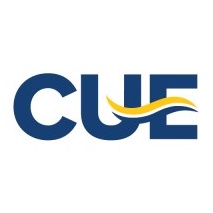
Researchers And FacilitiesOpen
Concordia University of Edmonton
Concordia University of EdmontonFind researchers to support your project at Concordia University of Edmonton
Eligible Funding
- No Condition
Eligible Industries
- All industries
Types of eligible projects
TechnologyInnovation

Researchers And FacilitiesExpert AdviceOpen
NRC — Canadian Photonics Fabrication Centre
National Research Council Canada (NRC)Photonics research facility in Ottawa
Eligible Funding
- No Condition
Eligible Industries
- Manufacturing
- Professional, scientific and technical services
Types of eligible projects

Researchers And FacilitiesOpen
Brock University
Brock UniversityConnect with researchers at Brock University
Eligible Funding
- No Condition
Eligible Industries
- All industries
Types of eligible projects
TechnologyInnovation

Researchers And FacilitiesExpert AdviceOpen
NRC — Canadian Centre for Housing Technology
National Research Council Canada (NRC)Housing technology test facilities in Ottawa
Eligible Funding
- No Condition
Eligible Industries
- Utilities
- Construction
- Manufacturing
- Real estate and rental and leasing
Types of eligible projects
TechnologyEnvironment and ClimateInnovation

Partnering and CollaborationGrant and FundingClosed
NGen — Feasibility Studies
Next Generation Manufacturing Canada (NGen)Supports collaborative advanced manufacturing innovation and technology feasibility projects
Eligible Funding
- From $100,000 to $500,000
- Up to 50% of project cost
Eligible Industries
- Manufacturing
- Professional, scientific and technical services
- Educational services
Types of eligible projects
CommercializationTechnologyInnovationDigital Transformation
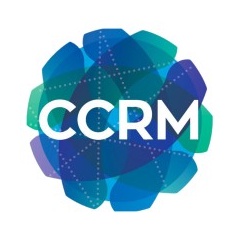
Partnering and CollaborationOpen
Centre for Commercialization of Regenerative Medicine
Centre for Commercialization of Regenerative MedecineHelp to commercialize cell and gene therapies and regenerative medicine technologies
Eligible Funding
- No Condition
Eligible Industries
- Manufacturing
Types of eligible projects
CommercializationTechnologyInnovation

Researchers And FacilitiesOpen
NRC — Research Aircraft Fleet
National Research Council Canada (NRC)Specialized and customizable research aircraft in Ottawa
Eligible Funding
- No Condition
Eligible Industries
- Manufacturing
- Transportation and warehousing
- Professional, scientific and technical services
Types of eligible projects

Partnering and CollaborationGrant and FundingClosed
NGen — Pilot Projects
Next Generation Manufacturing Canada (NGen)Supports collaborative innovation in advanced manufacturing technologies in Canada
Eligible Funding
- From $50,000 to $200,000
- Up to 50% of project cost
Eligible Industries
- Manufacturing
- Professional, scientific and technical services
Types of eligible projects
TechnologyInnovationDigital Transformation

Researchers And FacilitiesOpen
NRC — Rail vehicle impact ramp
National Research Council Canada (NRC)Rail vehicle testing facility in Ottawa
Eligible Funding
- No Condition
Eligible Industries
- Manufacturing
- Transportation and warehousing
- Professional, scientific and technical services
- Public administration
Types of eligible projects

Researchers And FacilitiesOpen
St. Paul's Hospital
St. Paul's HospitalWork with an expert researcher at St. Paul's Hospital
Eligible Funding
- No Condition
Eligible Industries
- All industries
Types of eligible projects
TechnologyInnovation

Researchers And FacilitiesExpert AdviceOpen
NRC — Nanotubes production research facility
National Research Council Canada (NRC)Nanotube facility in Ottawa
Eligible Funding
- No Condition
Eligible Industries
- Manufacturing
- Transportation and warehousing
- Information and cultural industries
- Professional, scientific and technical services
Types of eligible projects

Partnering and CollaborationOpen
Ontario Made
Canadian Manufacturers & Exporters (CME)Support to promote Ontario-made products
Eligible Funding
- No Condition
Eligible Industries
- Manufacturing
- Retail trade
Types of eligible projects
Innovation

Researchers And FacilitiesOpen
Saint Paul University
Saint Paul University (SPU)Team up with researchers at Saint Paul University
Eligible Funding
- No Condition
Eligible Industries
- All industries
Types of eligible projects
TechnologyInnovation

Researchers And FacilitiesExpert AdviceOpen
NRC — Hygrothermal performance of buildings testing facilities
National Research Council Canada (NRC)Energy efficient building testing in Ottawa
Eligible Funding
- No Condition
Eligible Industries
- Construction
- Manufacturing
Types of eligible projects
Environment and ClimateConstruction and Renovation

Researchers And FacilitiesOpen
University of Ottawa
University of OttawaConduct research and access University of Ottawa facilities
Eligible Funding
- No Condition
Eligible Industries
- All industries
Types of eligible projects
TechnologyInnovation
Requirements for project proposals
Applicants seeking research grants are required to submit detailed project proposals that clearly outline the research objectives, methodology, expected outcomes, and comprehensive budget plans.

Researchers And FacilitiesOpen
Northern Ontario School of Medicine
Northern Ontario School of Medicine (NOSM)Collaborate with experts on health research
Eligible Funding
- No Condition
Eligible Industries
- All industries
Types of eligible projects
TechnologyInnovation

Researchers And FacilitiesOpen
University of Ottawa Heart Institute
University of Ottawa Heart InstituteCollaborate with expert researchers at an academic institution
Eligible Funding
- No Condition
Eligible Industries
- All industries
Types of eligible projects
TechnologyInnovation

Researchers And FacilitiesOpen
McGill University Health Centre
McGill University Health Centre (MUHC)Partner with researchers at the McGill University Health Centre
Eligible Funding
- No Condition
Eligible Industries
- All industries
Types of eligible projects
TechnologyInnovation

Researchers And FacilitiesOpen
NRC — Steel Wave Flume - Research Facility
National Research Council Canada (NRC)Steel wave flume in Ottawa
Eligible Funding
- No Condition
Eligible Industries
- Mining, quarrying, and oil and gas extraction
- Construction
- Manufacturing
- Transportation and warehousing
Types of eligible projects
Innovation

Other SupportPartnering and CollaborationGrant and FundingExpert AdviceClosed
ventureLAB — Accelerate AI
ventureLABAccelerate AI empowers startups with AI innovation support
Eligible Funding
- No Condition
Eligible Industries
- Information and cultural industries
- Professional, scientific and technical services
Types of eligible projects
Artificial Intelligence (AI)

Researchers And FacilitiesOpen
Greenhouse Technology Network (GTN)
Federal Economic Development Agency for Southern Ontario (FedDev)Support for R&D in the greenhouse industry
Eligible Funding
- Maximum amount : 100,000 $
Eligible Industries
- Agriculture, forestry, fishing and hunting
- Professional, scientific and technical services
Types of eligible projects
TechnologyEnvironment and ClimateInnovation

Researchers And FacilitiesOpen
NRCC — Gas turbine research facilities
National Research Council Canada (NRC)Gas turbine research facilities in Ottawa and Thompson, Manitoba
Eligible Funding
- No Condition
Eligible Industries
- Utilities
- Manufacturing
- Transportation and warehousing
- Professional, scientific and technical services
Types of eligible projects
TechnologyEnvironment and ClimateInnovation

Partnering and CollaborationExpert AdviceOpen
Workforce Planning Boards
Government of OntarioLabour marketing information in Ontario
Eligible Funding
- No Condition
Eligible Industries
- All industries
Types of eligible projects

Researchers And FacilitiesOpen
NRC — Fire safety testing facility
National Research Council Canada (NRC)Fire safety testing in Ottawa
Eligible Funding
- No Condition
Eligible Industries
- Construction
- Manufacturing
- Transportation and warehousing
- Professional, scientific and technical services
Types of eligible projects
Technology

Partnering and CollaborationGrant and FundingWage Subsidies And InternsClosed
OCI — ENCQOR 5G Technology Development (SME) Program
Ontario Centre of Innovation (OCI)ENCQOR 5G SME Program for Ontario technology development
Eligible Funding
- Up to 100% of project cost
Eligible Industries
- Manufacturing
- Information and cultural industries
- Professional, scientific and technical services
Types of eligible projects
CommercializationTechnologyInnovation

Partnering and CollaborationGrant and FundingExpert AdviceOpen
Kenora and Rainy River District Business Accelerator Fund
Northwestern Ontario Innovation Centre (NOIC)Supports business growth in Kenora and Rainy River Districts
Eligible Funding
- Maximum amount : 10,000 $
- Up to 50% of project cost
Eligible Industries
- Manufacturing
Types of eligible projects
CommercializationTechnologyHuman ResourcesInnovationDigital Transformation

Researchers And FacilitiesOpen
Ottawa Hospital Research Institute
Ottawa Hospital Research Institute (OHRI)Connect with researchers at a health institute
Eligible Funding
- No Condition
Eligible Industries
- All industries
Types of eligible projects
TechnologyInnovation

Researchers And FacilitiesPartnering and CollaborationOpen
CRC Office of Business Development
Communications Research Centre CanadaCollaborate on wireless technologies R&D
Eligible Funding
- No Condition
Eligible Industries
- Information and cultural industries
- Professional, scientific and technical services
- Public administration
Types of eligible projects
Innovation

Researchers And FacilitiesOpen
Women's College Hospital
Women's College Hospital (WCH)Supports innovative research projects in healthcare and social well-being
Eligible Funding
- No Condition
Eligible Industries
- All industries
Types of eligible projects
TechnologyInnovation

Researchers And FacilitiesOpen
Toronto East Health Network - Michael Garron Hospital
Toronto East Health Network - Michael Garron Hospital (TEHN)Explore healthcare research opportunities at Michael Garron Hospital
Eligible Funding
- No Condition
Eligible Industries
- All industries
Types of eligible projects
TechnologyInnovation

Researchers And FacilitiesOpen
Emily Carr University of Art + Design
Emily Carr University of Art + Design (ECUAD)Explore opportunities for research in visual arts and design
Eligible Funding
- No Condition
Eligible Industries
- All industries
Types of eligible projects
TechnologyInnovation

Researchers And FacilitiesOpen
OCAD University
OCAD UniversityExplore research partnership opportunities at OCAD University
Eligible Funding
- No Condition
Eligible Industries
- All industries
Types of eligible projects
TechnologyInnovation

Researchers And FacilitiesPartnering and CollaborationOpen
Cégep de Matane
Cégep de MataneCégep de Matane: Conduct research at an academic institution
Eligible Funding
- No Condition
Eligible Industries
- All industries
Types of eligible projects
TechnologyInnovation
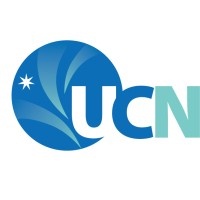
Researchers And FacilitiesOpen
University College of the North
University College of the NorthGet support for your research
Eligible Funding
- No Condition
Eligible Industries
- All industries
Types of eligible projects
TechnologyInnovation

Partnering and CollaborationGrant and FundingClosed
Libro Credit Union - Grants & Partnerships
United Communities Credit UnionSupports initiatives that strengthen financial well-being outcomes
Eligible Funding
- No Condition
Eligible Industries
- Finance and insurance
- Professional, scientific and technical services
- Health care and social assistance
- Other services (except public administration)
Types of eligible projects
Human Resources

Researchers And FacilitiesOpen
Université TÉLUQ
Université TÉLUQExplore research partnerships in a variety of fields
Eligible Funding
- No Condition
Eligible Industries
- All industries
Types of eligible projects
TechnologyInnovation

Researchers And FacilitiesOpen
Royal Roads University
Royal Roads UniversityRoyal Roads University: Team up with researchers at an academic institution
Eligible Funding
- No Condition
Eligible Industries
- All industries
Types of eligible projects
TechnologyInnovation

Researchers And FacilitiesOpen
Royal Ottawa Health Care Group
Royal Ottawa Health Care GroupFind expert researchers to support your project
Eligible Funding
- No Condition
Eligible Industries
- All industries
Types of eligible projects
TechnologyInnovation
Eligible Funding
- No Condition
Eligible Industries
- All industries
Types of eligible projects
TechnologyInnovation

Researchers And FacilitiesOpen
Sheridan College Institute of Technology and Advanced Learning
Sheridan College Institute of Technology and Advanced LearningConnect with an expert researcher at an institute of technology
Eligible Funding
- No Condition
Eligible Industries
- All industries
Types of eligible projects
TechnologyInnovation

Researchers And FacilitiesOpen
Montfort Hospital
Montfort HospitalConduct academic and clinical research at Montfort Hospital
Eligible Funding
- No Condition
Eligible Industries
- All industries
Types of eligible projects
TechnologyInnovation
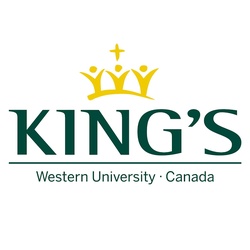
Researchers And FacilitiesOpen
King's University College at Western University
King's University College at Western UniversityFind a researcher to support your project
Eligible Funding
- No Condition
Eligible Industries
- All industries
Types of eligible projects
TechnologyInnovation

Researchers And FacilitiesOpen
University of Calgary
University of CalgaryFind researchers and facilities to support your project
Eligible Funding
- No Condition
Eligible Industries
- All industries
Types of eligible projects
TechnologyInnovation

Researchers And FacilitiesOpen
Concordia University
Concordia UniversityTake advantage of university research facilities
Eligible Funding
- No Condition
Eligible Industries
- All industries
Types of eligible projects
TechnologyInnovation

Researchers And FacilitiesOpen
Bruyère Research Institute
Bruyère Research InstituteTeam up with experts at a research institute
Eligible Funding
- No Condition
Eligible Industries
- All industries
Types of eligible projects
TechnologyInnovation
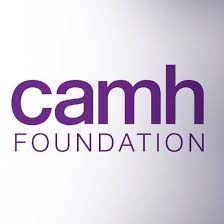
Researchers And FacilitiesOpen
Centre for Addiction and Mental Health
Centre for Addiction and Mental Health (CAMH)Collaborate with expert researchers at a centre for addiction and mental health
Eligible Funding
- No Condition
Eligible Industries
- All industries
Types of eligible projects
TechnologyInnovation

Researchers And FacilitiesOpen
Carleton University
Carleton UniversityTeam up with expert researchers and access lab facilities
Eligible Funding
- No Condition
Eligible Industries
- All industries
Types of eligible projects
TechnologyInnovation

Researchers And FacilitiesOpen
École de technologie supérieure
École de technologie supérieure (ETS)Work with academic researchers to advance your project
Eligible Funding
- No Condition
Eligible Industries
- All industries
Types of eligible projects
TechnologyInnovation

Eligible Funding
- No Condition
Eligible Industries
- All industries
Types of eligible projects
TechnologyInnovation

Researchers And FacilitiesOpen
University of Ontario Institute of Technology
University of Ontario Institute of TechnologyExplore research partnerships with a technology institute
Eligible Funding
- No Condition
Eligible Industries
- All industries
Types of eligible projects
TechnologyInnovation
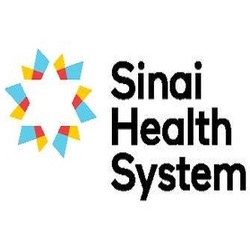
Researchers And FacilitiesOpen
Sinai Health System
Sinai Health SystemWork with researchers at Sinai Health System
Eligible Funding
- No Condition
Eligible Industries
- All industries
Types of eligible projects
TechnologyInnovation

Researchers And FacilitiesOpen
University of Winnipeg
University of WinnipegWork with researchers at the University of Winnipeg
Eligible Funding
- No Condition
Eligible Industries
- All industries
Types of eligible projects
TechnologyInnovation

Researchers And FacilitiesOpen
Seneca College of Applied Arts and Technology
Seneca College of Applied Arts and TechnologyFind expert researchers at an academic institution
Eligible Funding
- No Condition
Eligible Industries
- All industries
Types of eligible projects
TechnologyInnovation

Researchers And FacilitiesOpen
St. Jerome's University
St. Jerome's UniversityWork with an expert researcher at St. Jerome's University
Eligible Funding
- No Condition
Eligible Industries
- All industries
Types of eligible projects
TechnologyInnovation

Researchers And FacilitiesOpen
University Health Network
University Health Network (UHN)Form a research partnership with the University Health Network
Eligible Funding
- No Condition
Eligible Industries
- All industries
Types of eligible projects
TechnologyInnovation

Researchers And FacilitiesOpen
University of Guelph
University of GuelphCollaborate with researchers and access state-of-the-art facilities
Eligible Funding
- No Condition
Eligible Industries
- All industries
Types of eligible projects
TechnologyInnovation

Researchers And FacilitiesOpen
CHEO Research Institute
CHEO Research InstituteExplore research partnership opportunities
Eligible Funding
- No Condition
Eligible Industries
- All industries
Types of eligible projects
TechnologyInnovation

Researchers And FacilitiesExpert AdviceOpen
Ontario Bioindustrial Innovation Network
Bioindustrial Innovation Canada (BIC)Chemistry clusters in Sarnia-Lambton and St. Lawrence
Eligible Funding
- No Condition
Eligible Industries
- Manufacturing
- Professional, scientific and technical services
Types of eligible projects
CommercializationTechnologyEnvironment and ClimateInnovation
Explore related grant directories
By Funding Type
By Business Size
By Service
By Industry
Culture Grants and Funding in Ontario
Education Grants in Ontario
Grants and Funding for Financial Services in Ontario
Grants and Funding for Green Manufacturing and Decarbonization in Ontario
